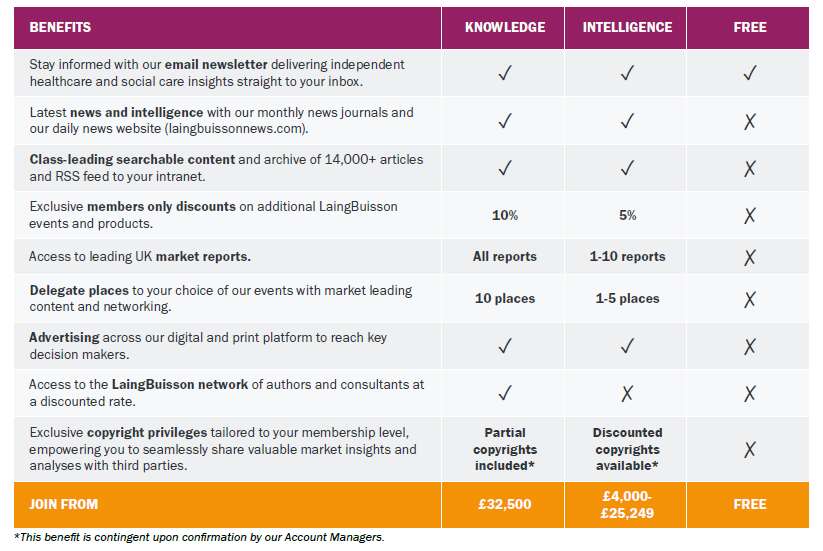Coronavirus accelerates demand for wellbeing cover
LaingBuisson has today launched the 16th edition of Health Cover UK Market Report.
Completed during the first weeks of the coronavirus pandemic, the report shows a health cover market well placed to offer ‘on demand’ remote wellbeing services to customers following recent developments by insurers. As a result of the pandemic, LaingBuisson anticipates an acceleration in product and service development around remote health diagnosis, treatment support and advice, and therapy, alongside physical and mental health prevention and assessment, as insurers develop their healthcare partnerships with corporates and personal customers.
There has been a noted upturn in use of remote access during the coronavirus lockdown and policyholders have valued advice and support from GPs, counsellors, therapists and other practitioners. LaingBuisson has identified wellbeing cover as an emerging standalone product in the market alongside its crucial role as an added value service attached to health insurance policies. It expects demand for this product to grow well in a post-coronavirus world as employers consider wider workforce coverage for employees to meet their duty of care. Tele-health and self-management of healthcare and wellbeing are also expected to drive forward developments, as working practices change going forward.
Nevertheless, coronavirus has dealt the health cover sector a huge challenge as independent hospital capacity has been signed over to support the pandemic response, and demand for elective acute treatment remains temporarily unmet. Sharp economic contraction following a halt in the majority of economic activity creates an uncertain and unusual business cycle, with impacts varied across sectors and socio-economic groups.
Before coronavirus, the private medical cover market showed a relatively static picture overall across several years, with UK coverage estimated at 6.84 million lives at the start of 2019, compared with 6.83 million three years before. In 2018, the number of subscribers grew only marginally, with a modest pick-up in SME demand and stable large corporate demand, as individual paid (personal sector) business recorded a small fall. Meanwhile corporate dental cover generated good growth, continuing its popularity as a workplace benefit, and the health cash plan market saw contributors edge higher as employer funded schemes continued on a strong upward trend, though overall spending moved down.
Philip Blackburn, report author, said:
“Like many other industries, health cover faces uncertain challenges in 2020 and 2021 as a result of coronavirus. The nature of the UK’s economic contraction is impacting sectors in different ways, with many businesses unsure about the size and shape of demand going forward, and varied consumer behaviour likely in the near term at a time when unemployment has risen sharply, while the government is providing massive financial support to cushion inactivity. The economic fall-out for the health cover sector is equally difficult to predict at this moment, though healthcare spending covets a strong purpose and need at this time. In the medium to long term, as wellbeing, prevention and healthcare access becomes more front facing in corporate decision making and consumer mindsets, the health cover industry will be looking for opportunity to serve a wider population, and changes taking place may be expected to stimulate innovation of affordable products and services which meet different needs along the care pathway.”







